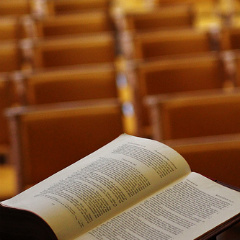When the Gallup organization asked people to “rate the honesty and ethical standards” of various professionals, respondents placed clergy down at number 8.
They fared better than chiropractors and lawyers, but nurses, pharmacists, medical doctors, engineers, dentists, police officers, even college teachers were all considered more trustworthy and ethical than pastors and priests.
Barely half, just 52 percent, of respondents said clergy’s honesty and ethical standards were high or very high.
The number has never been overwhelmingly high. Gallup started asking the question back in 1977. Sixty-one percent rated clerical honesty and ethical standards high or very high then. It’s been as high as 67 percent (1985), but the figure has mostly bobbed around between 50 and 59 percent ever since.
Downward trend
Pastors and priests have seemed to fare slightly better than the institutions they represent. Confidence in organized religion has been in decline for decades, according to Gallup.
While the “the church or organized religion” ranked higher than any other institution in 1973, it started to turn south in the middle 1980s, when for the first time confidence fell below 60 percent. Gallup suggests that the Jim Bakker and Jimmy Swaggart scandals of the time might explain the drop.
Through the 1990s institutional religion made a comeback, slowly and unsteadily again reaching 60 percent in 2001. That same year, trust in clergy at 64 percent was the highest it had been since 1985.
Then the Catholic child sex abuse scandal hit in 2002. Trust in the clergy fell to 52 percent, and confidence in organized religion plummeted from 60 percent to just 45 percent.
Where we are today
Today only 44 percent of Americans put much faith in institutional religion, a point worse than when the sex-abuse scandal hit.
This low score probably tracks with the rise of the nones, a difficult demographic to describe but which clearly places little confidence in organized religion. Just as clearly, Americans are still quite religious, but many of us are undoubtedly more cynical today as well.
A caution is in order. Cynicism is as understandable as it can be corrosive. Not only does it engender a skewed sense of self-assurance, but it might cause us to miss a pertinent point. A sin in the church, as Sergei Fudel maintained, is not a sin of the church, but rather a sin against the church.













